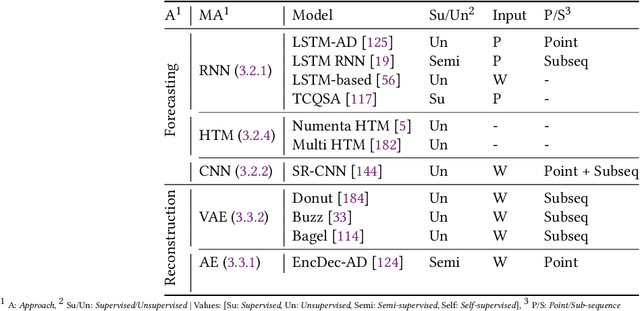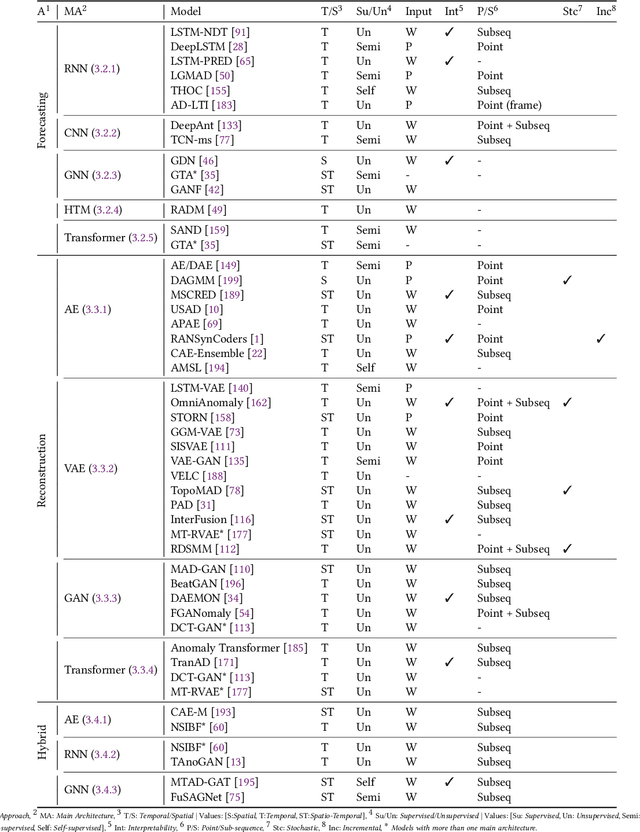Deep Learning for Time Series Anomaly Detection: A Survey
Paper and Code
Nov 09, 2022



Time series anomaly detection has applications in a wide range of research fields and applications, including manufacturing and healthcare. The presence of anomalies can indicate novel or unexpected events, such as production faults, system defects, or heart fluttering, and is therefore of particular interest. The large size and complex patterns of time series have led researchers to develop specialised deep learning models for detecting anomalous patterns. This survey focuses on providing structured and comprehensive state-of-the-art time series anomaly detection models through the use of deep learning. It providing a taxonomy based on the factors that divide anomaly detection models into different categories. Aside from describing the basic anomaly detection technique for each category, the advantages and limitations are also discussed. Furthermore, this study includes examples of deep anomaly detection in time series across various application domains in recent years. It finally summarises open issues in research and challenges faced while adopting deep anomaly detection models.
 Add to Chrome
Add to Chrome Add to Firefox
Add to Firefox Add to Edge
Add to Edge